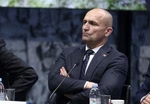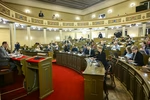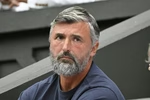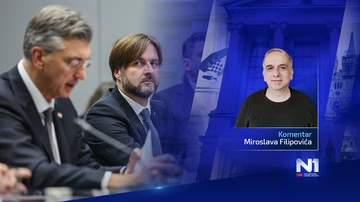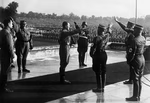Economist criticises minister's inflation advice: 'The only logical consequence is to starve to death'

Economist Neven Vidakovic discussed the fact that prices in Croatia are rising faster than in other European countries with Tihomir Ladisic on the morning programme "Novi dan".
Earlier this week, Economy Minister Ante Susnjar commented on data showing a further rise in inflation in Croatia in December - currently the highest in the eurozone, according to Eurostat - and called on citizens to boycott retailers who raise prices unjustifiably. He added that retailers will continue to raise prices irresponsibly as long as consumption "remains uncontrolled."
"We are a small, unstable and non-resilient economy"
When asked why inflation has risen the most in Croatia, according to Eurostat, Vidakovic explained:
"We are a small, unstable and non-resilient economy. Small countries always have higher inflation rates than large countries. Secondly, we were presented with something called the National Recovery and Resilience Plan (NPOO), and this figure shows that the programme has failed.
If we had a resilient economy, we would not be seeing this rate of inflation. This is the result of the economic structures built by previous governments. More important is the impact of this rate of inflation. It is not due to increased demand, as the minister claims. It is a structural inflation that cannot be tackled by fiscal or monetary policy, because these did not cause it. Our prices have risen by 4.5% compared to Europe. This means that our goods and services are becoming more expensive in relative terms and all our products are becoming less competitive."
Deglobalisation is causing high inflation
Regarding the minister’s call to citizens to penalise retailers who drive up prices, Vidakovic also recalled the advice of the Governor of the Croatian National Bank, Boris Vujcic, to buy where it is cheaper, and the suggestion of Minister Susnjar to produce goods yourself if you cannot afford expensive goods.
"If you can’t produce them yourself, the only logical consequence is starvation," said Vidakovic.
“The problem is not prices or inflation. Inflation is an expression of a shift in the economic structure, not just in Croatia or the EU, but worldwide. That is why all countries have higher inflation rates. Inflation arises because economic structures are changing. There was no inflation in the USA from 2000 to 2020, and commodity prices fell due to Chinese imports. The result was a loss of jobs in American industry. Globalisation has led to lower prices. Now deglobalisation is causing high inflation, loss of competitiveness in manufacturing and a complete collapse in productivity,” he explained.
How to fight structural inflation?
Vidakovic has made a concrete proposal for solving structural inflation:
“There is a building of futility, the Economic Institute. They should go to their library or across the street to the Faculty of Economics, borrow the book "Economic Inequalities in Yugoslavia" by Marijan Korosic, read it, study the methods, calculate with Croatian data, analyse the economic structure and then go to the ministers of finance and economics. They should explain what will happen and, together with the central bank, develop a monetary and fiscal policy to stop structural inflation,” said Vidakovic.
“They won’t do it, so don’t worry. They will not get up from their chairs and go to the library. The Croatian National Bank must influence which sectors of the economy are creditworthy and which are not. This approach has already been implemented once. They should use EU funds and the tax system to specifically reduce certain sectors, while incentivising others - especially the most important ones, such as food production.
There is no coordination between the three key players. It is too late now; structural inflation is no longer an issue. If it goes on for too long, it will spill over from economic instability to political instability. The economy no longer plays a role. You need a peaceful state with functioning institutions, and only then can the economy come into play. We have too much political instability,” he concluded.
Kakvo je tvoje mišljenje o ovome?
Pridruži se raspravi ili pročitaj komentare



 Srbija
Srbija
 Bosna i Hercegovina
Bosna i Hercegovina
 Slovenija
Slovenija










